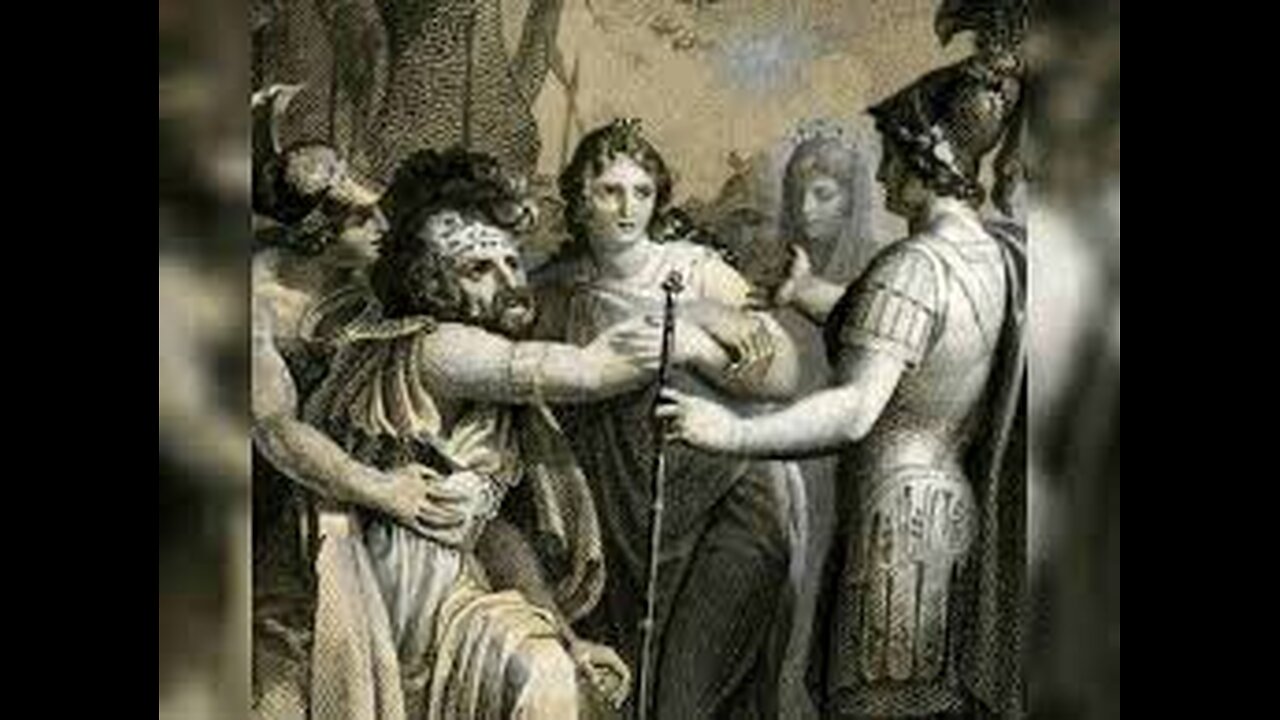Premium Only Content

Alexander the Great
Alexander the Great, born in 356 BCE in Pella, Macedonia, was one of history's most famous military leaders and empire-builders. He was the son of King Philip II of Macedon and Queen Olympias. Philip II transformed Macedonia into a powerful military state, but Alexander's conquests would soon surpass his father's achievements.
Early Life and Education
Alexander was tutored by the philosopher Aristotle, who instilled in him a love for knowledge, philosophy, and the Greek ideals. This education also fostered a deep appreciation for Greek culture, which Alexander later spread throughout his empire.
Rise to Power
After the assassination of his father, King Philip II, in 336 BCE, Alexander ascended to the Macedonian throne at the age of 20. He swiftly consolidated power by quelling rebellions among the Greek city-states, establishing his authority over Greece.
Conquests and Expansion
In 334 BCE, Alexander launched a campaign against the Persian Empire, ruled by King Darius III. Over the next decade, he achieved a series of stunning victories:
Battle of Granicus (334 BCE): Alexander's first major battle against the Persians, where he decisively defeated them.
Battle of Issus (333 BCE): A significant victory where Alexander's forces outmaneuvered and defeated a much larger Persian army led by Darius III.
Siege of Tyre and Gaza (332 BCE): After a long siege, Alexander captured Tyre and Gaza, securing control of the eastern Mediterranean.
Battle of Gaugamela (331 BCE): A decisive battle where Alexander's strategic brilliance led to the defeat of Darius III and the collapse of the Persian Empire.
Founding of Alexandria and Spread of Hellenism
After conquering Persia, Alexander continued his journey into Egypt, where he was welcomed as a liberator. He founded the city of Alexandria at the mouth of the Nile, which later became a cultural and intellectual hub of the ancient world.
Alexander's conquests stretched from Greece to Egypt and as far east as India, spreading Greek culture (Hellenism) throughout these regions. His blending of Greek and Eastern customs led to a new cultural era, where art, philosophy, and trade flourished.
Campaign in India and Final Years
In 327 BCE, Alexander led his army into India, defeating King Porus at the Battle of the Hydaspes River. However, his troops, weary from years of campaigning, refused to go further east, and Alexander was forced to turn back.
Returning to Babylon in 323 BCE, Alexander made plans for further expansions and to integrate his vast empire. However, he fell ill and died in June 323 BCE at the age of 32. The exact cause of his death remains uncertain, with theories ranging from natural illness to poisoning.
Legacy
Alexander's death left a power vacuum, as he left no clear heir. His generals, known as the Diadochi, divided his empire among themselves, leading to a series of conflicts. Despite the fragmentation, Alexander's influence persisted for centuries. His conquests spread Greek culture across Asia, leading to the Hellenistic Era, which shaped the development of art, science, and philosophy in the Mediterranean and the Near East.
Alexander the Great remains a symbol of military genius, ambition, and the enduring power of cultural exchange. His legacy is a blend of heroism and complexity, a testament to both his achievements and the enduring impact of his brief but transformative life.
-
 1:01:13
1:01:13
Candace Show Podcast
4 hours agoBlake Lively's BOMBSHELL Legal Filing | Candace Ep 149
79.1K95 -
 1:11:22
1:11:22
Vigilant News Network
7 hours agoElon Musk Shuts Down RFK Jr. Critics With One Powerful Statement | The Daily Dose
54K13 -
 1:12:23
1:12:23
Dad Dojo Podcast
19 hours ago $0.47 earnedEP20: The Super Bowl and Solving The Economy
23.3K -
 4:49
4:49
Tactical Advisor
3 days agoBest Small Handgun Optics | CH PWS Shot Show 2025
5.94K2 -
 1:01:21
1:01:21
In The Litter Box w/ Jewels & Catturd
23 hours agoI've Got Your Proof - Right Here! | In the Litter Box w/ Jewels & Catturd – Ep. 745 – 2/19/2025
84.5K29 -
 2:14:30
2:14:30
FreshandFit
7 hours agoDavid Icke On COVID Lies, Censorship, Secret Societies, Infiltration of MAGA, AI Control, Alternative Media Subversion And MORE!
94.4K46 -
 1:41:41
1:41:41
The Quartering
9 hours agoTrump's New IVF Order, GameStop CEO Denounces Wokeness Amid Sale, and Elon Musk's DOGE Role Revealed
112K61 -
 LIVE
LIVE
Dr Disrespect
8 hours ago🔴LIVE - DR DISRESPECT - TARKOV - ZERO TO HERO PISTOL ONLY
2,097 watching -
 1:55:42
1:55:42
Film Threat
9 hours agoCRISIS ON MULTIPLE MARVEL MOVIES! | Hollywood on the Rocks
22.8K1 -
 49:19
49:19
Miss Understood With Rachel Uchitel
1 day agoKris Krohn: The Real Estate Playbook for Financial Freedom
67.4K3